Manuel is working his way through all the LGBT-themed HBO productions.
Last week we looked at The Sopranos, The Wire and Carnivàle. I commended each of those series for putting LGBT characters front and center and, more importantly, for not treating their sexuality as their only character dimension. But what of HBO’s comedies? If these dramas were doing the heavy lifting, what can we glean from looking at their comedic contemporaries?
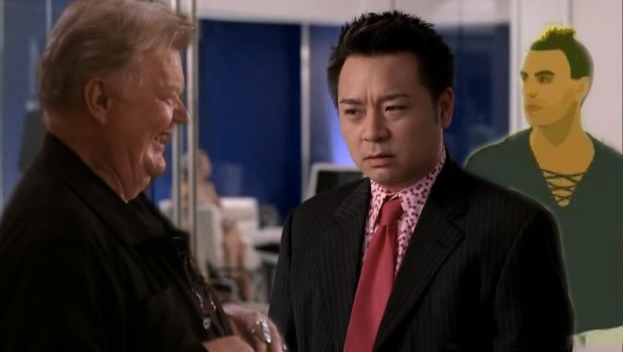
Well, let’s just say that, in 2015 journalistic parlance, HBO had some “problematic” characters on display.
A limp wrist. A lilting high-pitched voice. A jutting hip. A flair for style. We all know these characteristics of the stereotypical gay male of the late twentieth century; it’s as reviled as it is ubiquitous. But it also demands close scrutiny; why should we refuse to give voice to these flamboyant members of the LGBT community? And yet, why should all mainstream America be solely exposed to them as if they were the entire community? This week we’ll try and address these questions while talking about “gay minstrelsy” as we discuss Da Ali G Show, TFE fave, The Comeback and Entourage after the jump...
Da Ali G Show - "Respek" (July 18, 2004)
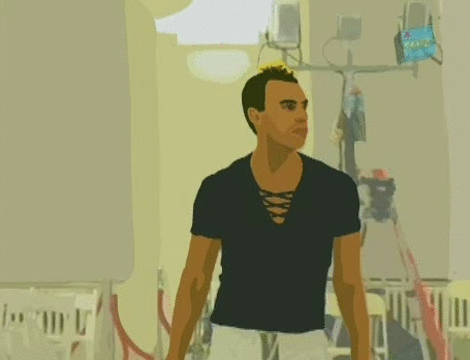 I have to admit I’m only familiar with Sacha Baron Cohen’s Ali G via Madonna’s “Music” video, while I’ve yet to brave watching Borat or Brüno. Both feature-length films always struck me as juvenile, milking tired stereotypes for cheap laughs, but perhaps my aversion to them says more about my own comedic sensibilities than Cohen’s own creations. All three characters, of course, began in Da Ali G Show, which aired first on Channel 4 in the UK and later on HBO in the US. The humor of the show centers on these three “journalists” seriously interviewing various people around the US, crafting uncomfortable and discomforting scenes that depend on but (and here is what surprised me) also question the very stereotypes they embody.
I have to admit I’m only familiar with Sacha Baron Cohen’s Ali G via Madonna’s “Music” video, while I’ve yet to brave watching Borat or Brüno. Both feature-length films always struck me as juvenile, milking tired stereotypes for cheap laughs, but perhaps my aversion to them says more about my own comedic sensibilities than Cohen’s own creations. All three characters, of course, began in Da Ali G Show, which aired first on Channel 4 in the UK and later on HBO in the US. The humor of the show centers on these three “journalists” seriously interviewing various people around the US, crafting uncomfortable and discomforting scenes that depend on but (and here is what surprised me) also question the very stereotypes they embody.
Take, for example, the episode “Respek” where Brüno sits down to talk with pastor Quinn, the “gay converter” working out of Little Rock. Asked why “being gay is out this season” (in itself a subtle joke at Quinn’s expense), pastor Quinn is left to grasp at straws trying to make the argument that the Bible says something or other about how homosexuality is evil. Brüno’s outfit, accent and mannerisms read gay to us, which makes this exchange all the funnier so that later, when Brüno asks pastor Quinn what he thinks of the fact that he had sex “with this amazingly cute Brazilian guy”, the pastor is left to stammer the following:
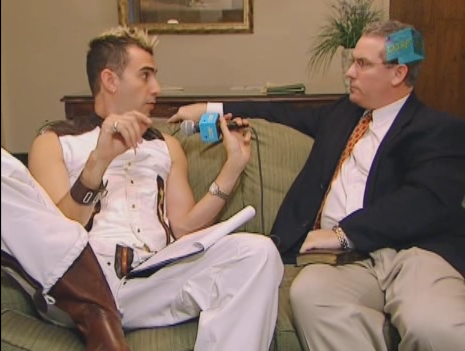
If, in fact, you did have a sexual relationship with a man of the same sex as yourself, then that is a homosexual act.
The humor lies then, not in Brüno’s own flaming, Euro-gay style and demeanor but in pastor Quinn’s empty rhetoric. It’s an especially common comedic tactic and one which I am unsure would work just as well in a feature-length (any Brüno fans out there care to comment?) but this strikes me as an example of a character we could quite easily dismiss for its flagrant flamboyance (what is Cohen doing if not engaging in gay minstrelsy?) if it weren’t being deployed for mockery of those quick to judge gay men themselves.
The Comeback - "Valerie Saves the Show" (July 17, 2005)
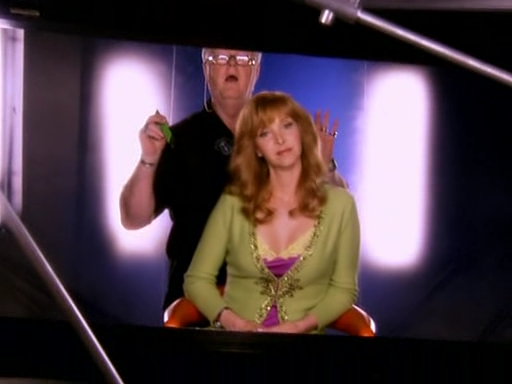
We’d be remiss if, in discussing HBO’s LGBT characters, we didn’t stop to talk about Mickey Deane, Valerie Cherish’s trusted hairstylist, played by the wonderful Robert Michael Morris. In “Valerie Saves the Show,” while the overall plot revolves around Valerie (yet again!) suffering humiliations at the hands of Paulie G and co., we get a snippet of a moment about Mickey and his sexuality that is both funny and telling,
After catching the season premiere of Room and Board at Valerie’s house, Juna (Malin Akerman) pauses to ask Mickey whether he’d be interested in letting her set him up with a guy from her building. His reaction, while staring at the camera, is one of shock. He smiles politely without ever answering her. The next day we find out why in what is a great example of what this comedy show does best, giving us reaction shots of characters who are quickly trying to calculate exactly how they should react (you can see Valerie’s competing thoughts in Kudrow’s face in that split-second shot):
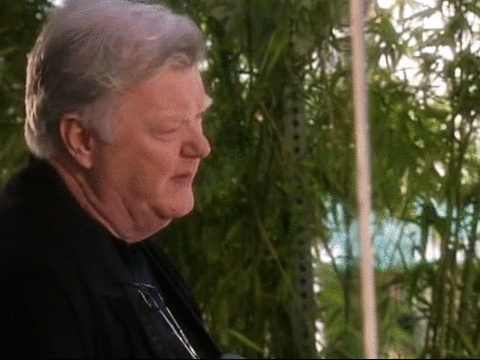
Did you tell Juna I was gay?
Valerie denies this, leading Mickey to wonder how Juna found out. The humor here lies in the fact that Mickey (a hairstylist, for god’s sakes!) is unaware of how he reads as gay. He espouses an argument about the privacy of his own sexuality, which, to everyone, is already an open book. It’s an amazing joke precisely because it’s not made at Mickey’s expense (he is, after all, controlling the scene) and because it renders, a tad hysterically, both the panic not about being outed but about not controlling that very process. In itself it shows a clear change in outlook from the closeted gay men we’ve already encountered. It also shows how issues of privacy have changed from fearing being found out, to the agency of coming out on one’s own terms (however hard that might be for men who look and sound like Mickey).
Entourage - “Dog Day Afternoon” (April 15, 2007)
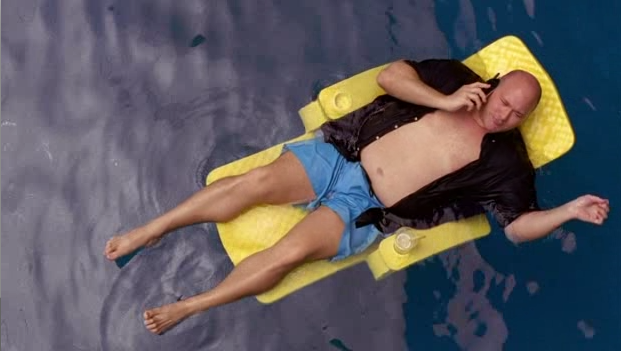
This was my first encounter with the Entourage boys and I have to say, I was right to have stayed away for so long. There’s a case to be made about how this Mark Wahlberg-produced show functions as some keen-eyed satire of Hollywood, but the show is so enamored with its leads and the world they live in that there’s little to no irony to detect, no distance from where to figure its satirical bite. So, in a show full of bros and bras, how does a Chinese gay assistant fare? Well, let’s check in on Ari Gold (Jeremy Piven) and find out in a bit of expository dialogue how Lloyd (Rex Lee) fits into the show in general and this episode in particular:
Ari: Jay fired his agency yesterday and we’ve got to nail this guy.
Lloyd: So, why am I going?
A: Because he’s a queen just like you. He’s never had a straight agent. And if I’m going to be his first, I need to show him that I am a friend to the gay man.
L: But you’re not a friend to the gay man, are you Ari?
A: Lloyd, this is the big one. So just grab your best dress and know that today, your love of cock is a huge asset to this company.
The episode doesn’t get any better. Jay, it turns out, is a narcissistic, power-hungry player who continually requires Lloyd to debase himself so as to close the deal.
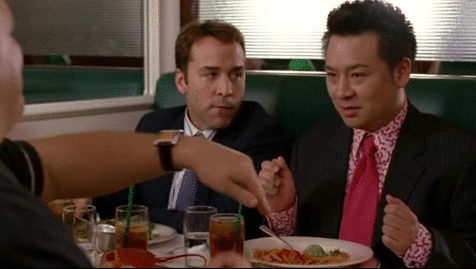
It’s refreshing to see Entourage level the playing field and show a gay man using the same types of tactics the show usually reserves for straight men, but his lisp, his sassy quips, and his predatory (homo)sexuality (ugh those shots of that gay club put Shame to well, shame) are ultimately construed as horribly villainous. This is the one line Ari implausibly refuses to cross.
More tellingly, the show doesn’t even allow Lloyd to own this narrative. The episode strips him of all agency (either doing Ari’s bidding or giving in to Jay’s seduction) and even when he finally stands up for himself (after Jay makes a racist remark at his expense), the focus remains on Ari. Implausibly, despite the abuse he throws his way, Lloyd says Ari could never get on his bad side. Lloyd’s career and identity, then, are not only subsumed by Ari, but so is his humiliation. Ari’s trip to that part of town he “drives by FAST” (because… he’d turn gay?) is a way for him to avoid any guilt for himself; he says he can’t let Lloyd go home with Jay because at his agency they “may be whores, but we ain’t pimps.” Even grammatically, Lloyd is nowhere to be found, he’s just a swishy, gay extension of Ari he gets to use, abuse and deploy whenever and however (and only if) he wishes. Groan. Can any Entourage fans speak up about whether I’m being horribly unfair to Ari and Lloyd?

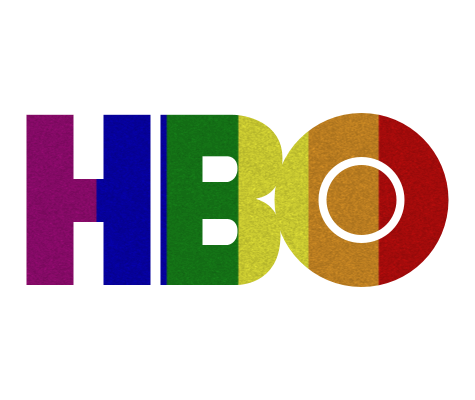
Fun Awards Fact: In 2009, the Teen Choice Awards, that esteemed prize-giving entity, offered up a rather curious category: Choice TV Fab-u-lous. Its nominee list reads like a who’s who of gay stereotypes: America's Next Top Model’s J. Alexander (winner), How to Look Good Naked, Queer Eye’s Carson Kressley, Perez Hilton, Ugly Betty’s Michael Urie and Entourage’s Rex Lee. Their grouping (in a category that never again saw the light of day) brings up icky questions about what types of gay men (were there no fabulous gals?) get represented and accepted, but also whether these are the types of gay men that should be representative. Is it worth pointing out that it's sort of odd that the LGBT community gets only (if marginally) recognized via its fabulousness limiting? Or do we take it as progress? (I mean, Miss J is fabulous, so there’s no denying that!) Moreover, what do we make of the fact that personalities like Perez, Miss J and Kressley are nominated alongside Urie and Lee; are we celebrating these latter two's performances, their characters, or themselves; or, more problematically, does the category not really care to make such distinctions? Too many questions to unpack!
Next Week: After the epic Angels in America and these two weeks looking at HBO’s TV output, we’re changing gears yet again as we revisit All Aboard! Rosie's Family Cruise (DVD on Amazon), an HBO doc chronicling Rosie O’Donnell’s first LGBT family cruise.